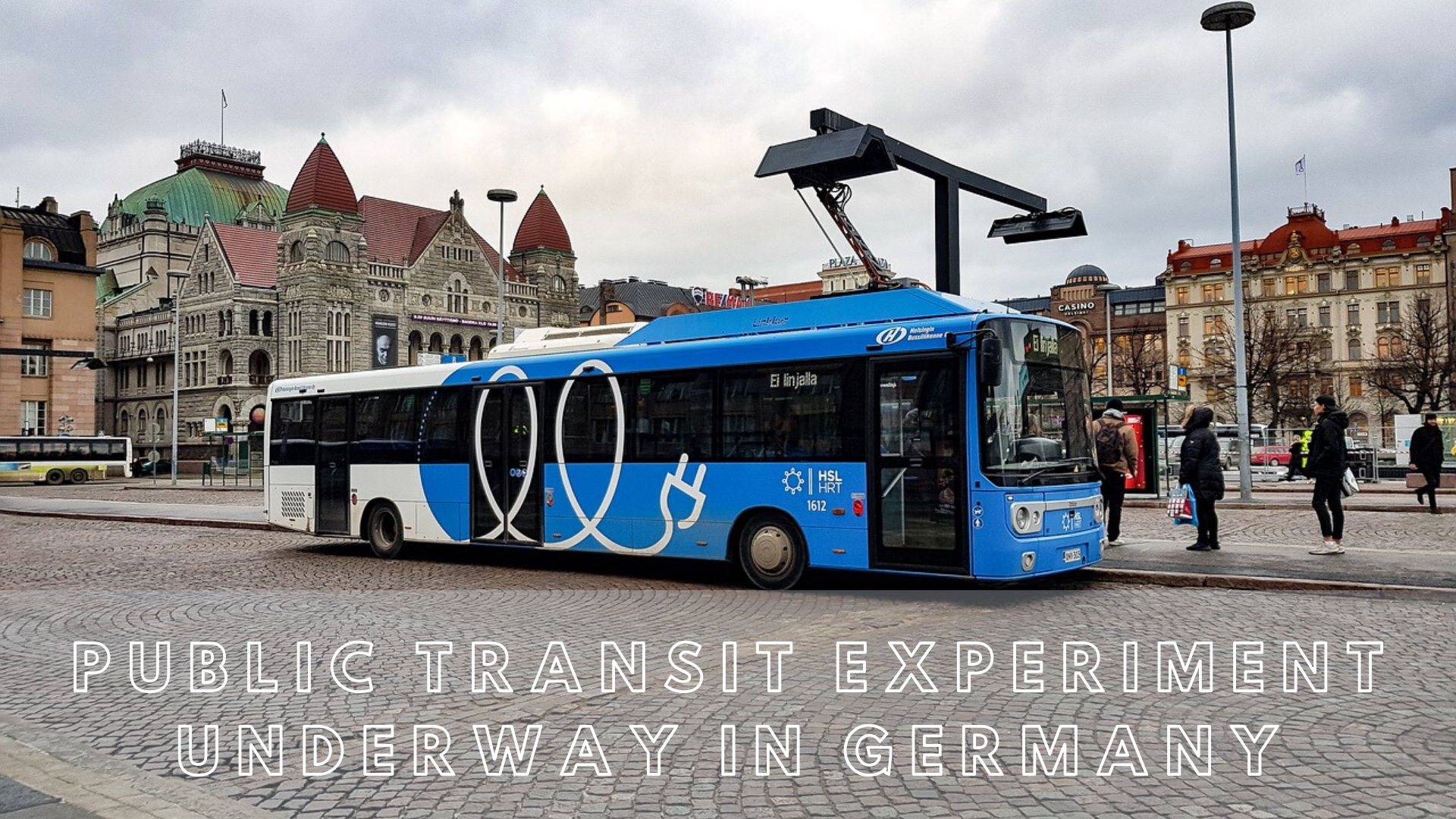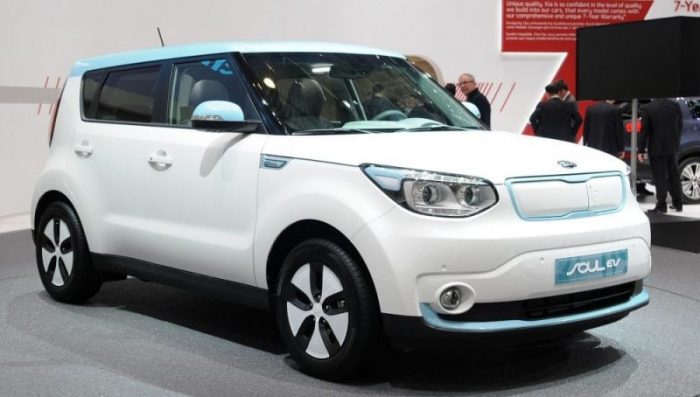
Though Germany may have gained fame as a producer of cars, with the major automaker Volkswagen stationed there, the country will soon be making public transportation free in a bid to convince more people to use mass transit. Germany is aiming to drastically cut air pollution in the country to avoid paying large fines imposed by the EU.
January 30th marked an EU deadline for member countries to meet new air emissions limits, controlling levels of air pollutants. Those who do not adhere to the emissions limits can be punished by the European Court of Justice, and have substantial fines and possibly other legal punishments imposed upon them. Nine members of the European Union including Germany, Spain, Italy, and France have failed to meet the deadline, and have been given a little extra time to establish policies that will limit emissions of air pollution or face legal action.
A Five-City Free Transportation Experiment
By the end of this year, at least five cities in Germany, including Bonn, Essen, and Mannheim, will experiment with free public transportation. The decision to make public transportation free of charge is an active attempt to reduce the number of private vehicles on the road.
“A developed country isn’t a place where the poor have cars. It’s where the rich use public transportation.” — Gustavo Petro
The political and legal pressure coming from the EU and from Brussels is not the only reason Berlin has chosen to experiment with free public transportation. The quality of the ambient air within Germany has become a priority for the country over the last year, according to Environment Minister Barbara Hendricks, who says that Berlin is committed to reducing air pollution “without any further unnecessary delays.”
Dangerous levels of air pollution plague more than 130 cities across all of Europe. This air pollution leads to approximately 400,000 deaths and thousands more hospitalizations every year, costing Europe about 20 billion Euros (approximately 25 billion dollars) a year. The primary air pollutants that Germany is concerned with are nitrogen oxide and particulate matter.
Nitrogen Oxide And Particulate Matter

Photo: Foto-Rape via Pixabay
Nitrogen oxide is a colorless, odorless air pollutant that is released by the combustion of fossil fuels at industrial facilities, power plants, and motor vehicles. Nitrogen oxide combines with oxygen in the air and turns into nitrogen dioxide, a harmful air pollutant that can lead to the development of respiratory diseases and contributes to acid rain. Short-term exposure to nitrogen dioxide air pollution can cause difficulty breathing, wheezing, and coughing. Sufficiently high levels of nitrogen dioxide can exacerbate conditions like asthma, requiring hospital visits. Exposure to elevated levels of nitrogen dioxide can cause the development of asthma, and can also increase a person’s susceptibility to cardiovascular and respiratory infections.
Particulate matter is made out of tiny liquid and solid particles. Particulate matter doesn’t refer to any single air pollutant, instead, PM is an umbrella term that encompasses a wide variety of tiny particles varying in chemical composition. Particulate matter is usually grouped into two different categories: PM10 and PM2.5. PM 10 refers to particle pollution 10 µm and smaller, while PM 2.5 refers to pollutants 2.5 µm and the smaller, which are smaller than the width of a human hair. At these small sizes, the particles can enter into the human lungs and bloodstream, where they can do damage to the cells of the human body. Exposure to particulate matter can cause a variety of health problems including heart attacks, increased susceptibility to infection, decreased overall lung function, stroke, and an increased risk for lung cancer.
“You can’t understand a city without using its public transportation system.” — Erol Ozan
Berlin has committed itself to reduce levels of these air pollution, perhaps motivated to take the issue of air pollution as seriously as possible after it was revealed that Volkswagen had been cheating during emissions tests two years ago. During 2015 Volkswagen admitted to cheating on emissions regulatory tests for around 11 million diesel vehicles. In response to the controversy, environmentalist groups have brought forth court cases aimed at banning diesel engines from the center of some cities.
Funding Free Public Transportation

Photo: By Norbert Aepli, Switzerland, CC BY 3.0, Wikimedia Commons
Major automotive companies like Daimler, Volkswagen, and BMW all agreed to pay approximately 250 million euros (about 310 million dollars) towards upgrading transport as a result of the scandal. The German government has been urged by activist groups like Greenpeace to hold car manufacturers accountable by having them finance the free transport. Even car manufacturers themselves have recognized a need to invest in less pollutive vehicles, planning to release many hybrids or fully electric vehicles over the coming decade. Volvo has stated that after their current round of diesel vehicles are produced, they will cease producing diesel engines entirely.
Free public transportation is not the only policy Germany is considering to reduce air pollution levels. Germany has proposed a number of other policies such as increased restrictions on the emissions of vehicles involved in public transportation (such as buses), as well as designated low emissions zones.
While the German government is committed to supporting policies that will reduce air pollution and reduce the number of diesel engines on the road, there’s also an acknowledgment that more planning and construction will be required if the experiments with free travel are to pay off. Indeed, experiments with free transportation in other cities around the world, including an attempt made by Seattle, Washington have failed.
The mayor of Bonn, Ashok Sridharan, voiced his concerns about the free transportation initiative:
“I don’t know any manufacturer who would be able to deliver the number of electric buses we would need.”
These sentiments were echoed by Helmut Dedy, the Association of German Cities chief, who says that German cities need clear communication from the federal government as to where the funding for the programs will come from.
In a nation like Germany, whose economy is tied tightly to the production of vehicles, a rapid transition to free public transportation may prove difficult. Nonetheless, German automakers and Europe as a whole are poised to transition away from traditional fossil fuel-driven personal vehicles. Germany has doubled-down on its commitment to electric vehicles and wants to have one million electric cars on German roads by 2020. One way or another, via free public transportation or not, the era of fossil fuel-powered vehicles in Europe looks to be coming to a close.









